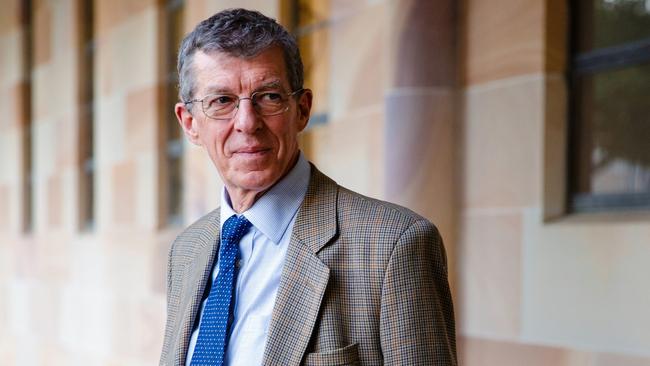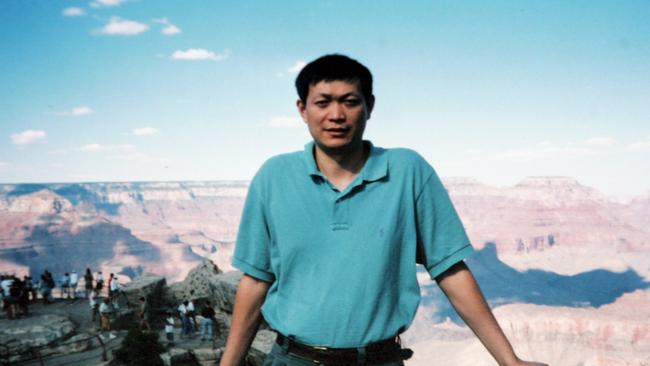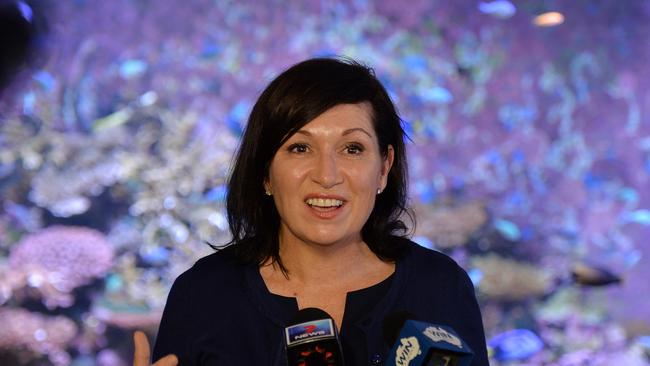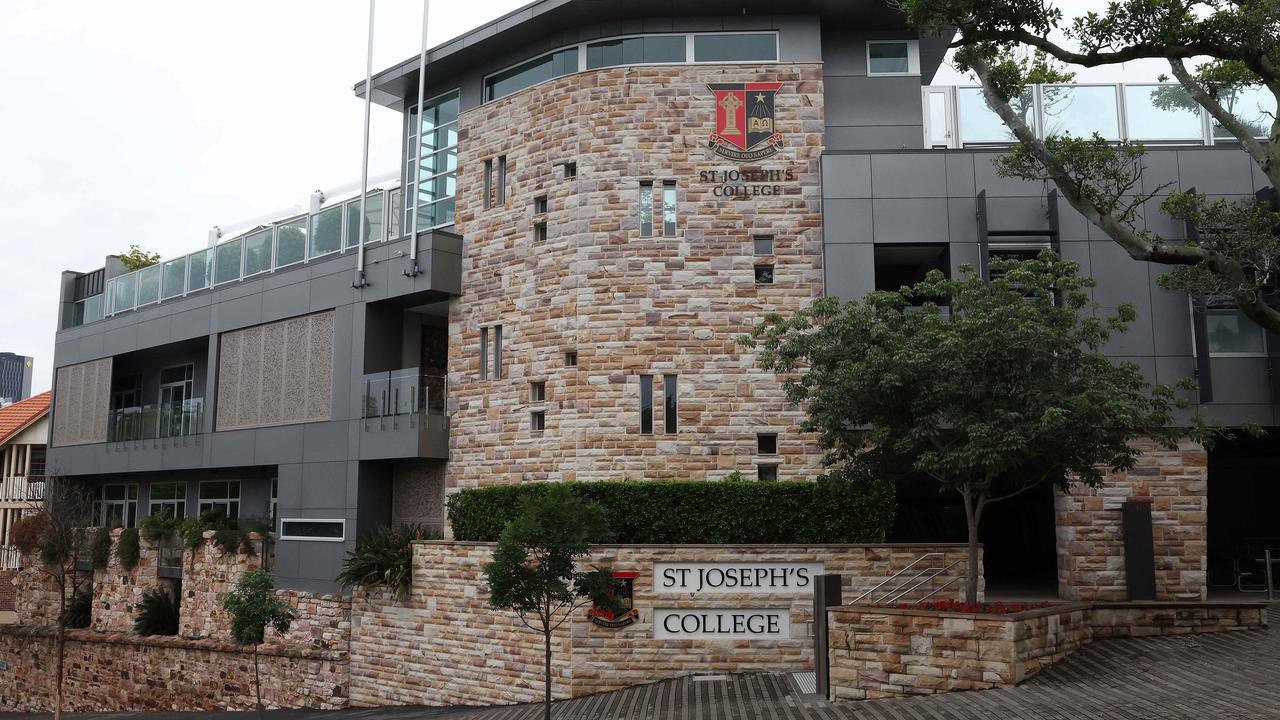University of Queensland scientist Ian Frazer on cusp of breakthrough on neck cancer vaccine
CELEBRATED scientist Ian Frazer could be on the cusp of another big cancer breakthrough with human trials about to start on a new vaccine treatment.

QLD News
Don't miss out on the headlines from QLD News. Followed categories will be added to My News.
IAN Frazer may be on the cusp of another big cancer breakthrough with human trials about to start on a vaccine treatment for head and neck cancer.
The vaccine is designed to harness the immune system to treat head and neck cancer associated with the human papilloma virus, the same infection linked to cervical cancer.
HPV-related head and neck cancer is rising in incidence and is believed to be transmitted through oral sex.
Professor Frazer’s celebrated cervical cancer vaccine, developed in 1990 with the late virologist Jian Zhou at the University of Queensland, has been given to millions of people worldwide, greatly reducing the risk of women developing cervical cancer.

He said the head and neck cancer vaccine also arises from work he did with Dr Zhou, who died in 1999.
But unlike the cervical cancer vaccine, the head and neck cancer product has been developed as a potential therapy rather than as a preventive.
After successful animal trials, the former Australian of the Year has been given a $250,000 Advance Queensland grant from the Palaszczuk Government to fund the first human trial of his head and neck cancer vaccine to test its safety in 12 Princess Alexandra Hospital patients.

Queensland Science Minister Leeanne Enoch said the new vaccine had the potential to become a billion-dollar market within three years of being approved, given the 600,000 new cases of human papilloma virus-associated cancers diagnosed worldwide each year.
“When Professor Frazer and Dr Zhou discovered a vaccine for the human papilloma virus in 1990 the health of women around the world changed for the better,” Ms Enoch said.
“This latest project also has enormous potential – from saving lives to reinforcing Queensland’s reputation as a place to conduct and invest in research and clinical development.”
Professor Frazer is working with Brisbane-based company Admedus Immunotherapies on the head and neck cancer vaccine.
He said the vaccine caused the body’s immune system to make killer T cells which target tumour cells containing bits of the virus.
The first trial will test the vaccine in patients with head and neck cancer who have had successful chemotherapy and radiation treatment. In about 20 per cent of patients, the cancer spreads to other parts of the body.

But Professor Frazer stressed the first trial was designed to test the vaccine’s safety.
If blood tests also show the vaccine causes the desired immune response in patients, a second trial is expected to begin next year to assess its effectiveness. That will be in patients whose cancer has spread.
Virus-associated cancers make up an estimated 20 per cent of the cancer burden worldwide.
“Harnessing the immune system is a new way to treat these virus-associated cancers,” Professor Frazer said. “It’s always exciting when we can start a clinical trial program because it means that we’re getting nearer to something that will help people.”
Admedus Immunotherapies CEO Neil Finlayson said they were awaiting ethics committee approval before the safety trial could begin.


